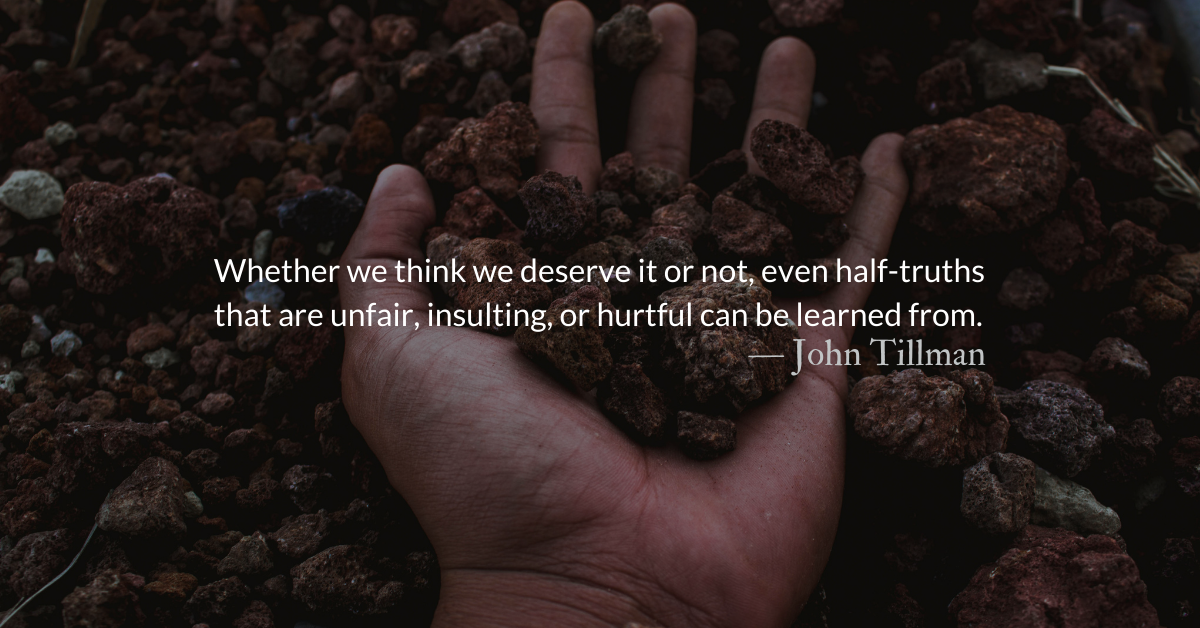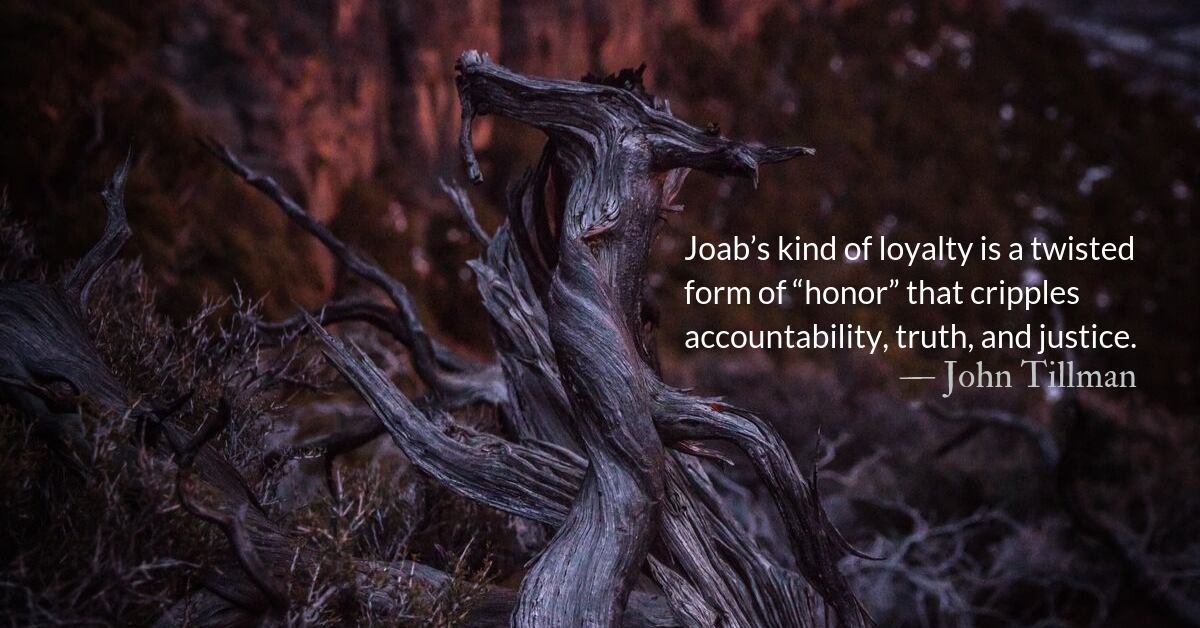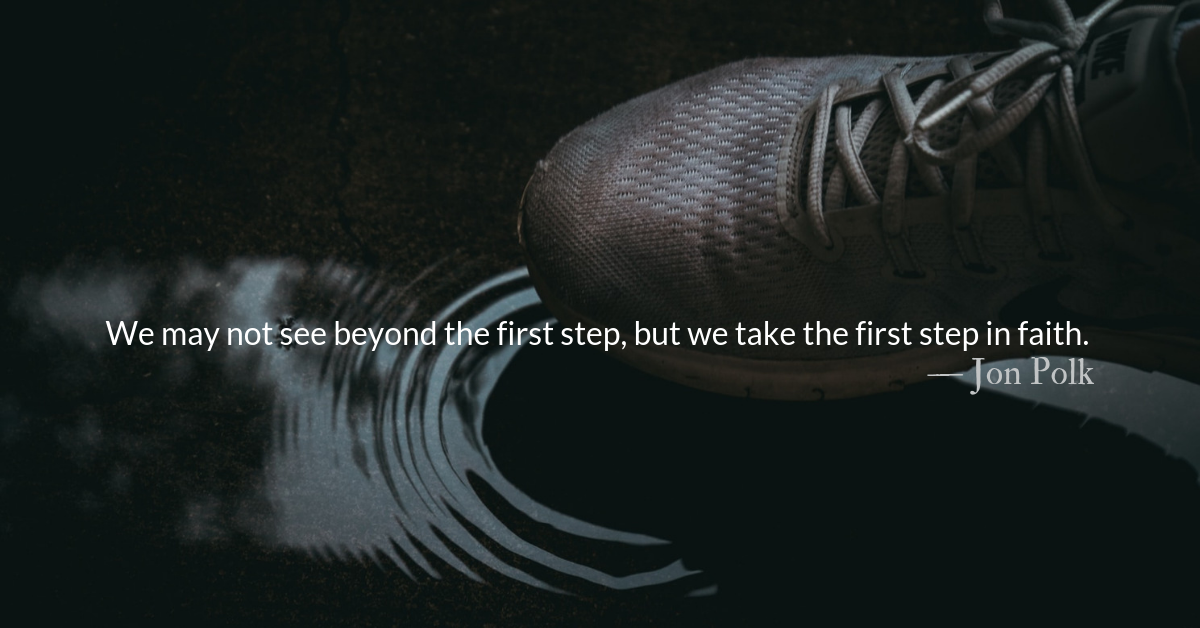Scripture Focus: 2 Samuel 16.6-8, 9, 11-12
6 He pelted David and all the king’s officials with stones, though all the troops and the special guard were on David’s right and left. 7 As he cursed, Shimei said, “Get out, get out, you murderer, you scoundrel! 8 The Lord has repaid you for all the blood you shed in the household of Saul, in whose place you have reigned. The Lord has given the kingdom into the hands of your son Absalom. You have come to ruin because you are a murderer!”
9 Then Abishai son of Zeruiah said to the king, “Why should this dead dog curse my lord the king? Let me go over and cut off his head.”
11 David then said to Abishai and all his officials, “My son, my own flesh and blood, is trying to kill me. How much more, then, this Benjamite! Leave him alone; let him curse, for the Lord has told him to. 12 It may be that the Lord will look upon my misery and restore to me his covenant blessing instead of his curse today.”
Reflection: Bearing Cursing
By John Tillman
David fled Jerusalem before Absalom as one mourning, not as a king. Barefoot and weeping he climbed the Mount of Olives. (2 Samuel 15.30) David recognized that it was his sinfulness that was the root of all of this suffering. Perhaps it was this attitude that prepared David for the insults and mistreatment of Shimei.
There are moments in scripture when someone unintentionally prophesies. One is when the High Priest says regarding Jesus, “it is better for you that one man die for the people than that the whole nation perish.” (John 11.50) Another is here along the road from Jerusalem where a relative of Saul hurls sticks and stones, as well as hurtful words at David.
David seems stung more by Shimei’s words than his stones. Shimei called David a murderer or a “man of blood.” Shimei’s statements are at least partly true. The murder of Uriah must have risen in David’s thoughts as he heard Shimei’s insults and his celebration of his circumstances. David apparently recognized in them an echo of Nathan’s prophecy that “the sword will never depart from your house.” (2 Samuel 12.10)
As he rebuked Abishai, who wanted to kill Shimei, David confirmed that, at least in David’s mind, God was the one sending these insults, sticks, stones, and clods of dirt.
We are all going to face some Shimei-like treatment from time to time. Whether we think we deserve it or not, even half-truths that are unfair, insulting, or hurtful can be learned from. David doesn’t engage with Shimei or try to win him over. He recognized that it was natural for someone from Saul’s family to not like him and to say mean things about him. David recognized that God could use what he was experiencing.
David also did not hold Shimei’s actions against him. Later, when David returns, Shimei is the first to greet him and repents of what he said. David offers him forgiveness and again prevents Abishai from killing him.
Even if, as with Shimei, the insults are exaggerated or unfair, we can trust God with the outcome and not strike back in the same manner or worse. Rather than lashing out when cursed, may we seek consolation in God and humbly endure insults in the name of Jesus.
Divine Hours Prayer: The Request for Presence
Protect me, O God, for I take refuge in you; I have said to the Lord, “You are my Lord, my good above all other.” — Psalm 16.1
– From The Divine Hours: Prayers for Summertime by Phyllis Tickle.
Today’s Readings
2 Samuel 16 (Listen – 4:03)
2 Corinthians 9 (Listen -2:26)
Read more about King on the Mountain, King on the Cross
They expected a king to banish the cursed outcasts and sinners. He brought them in and blessed them.
Read more about In the Face of Mockery and Shame
The mockery of the passing crowds was not by accident, but part of the punishment’s design.









